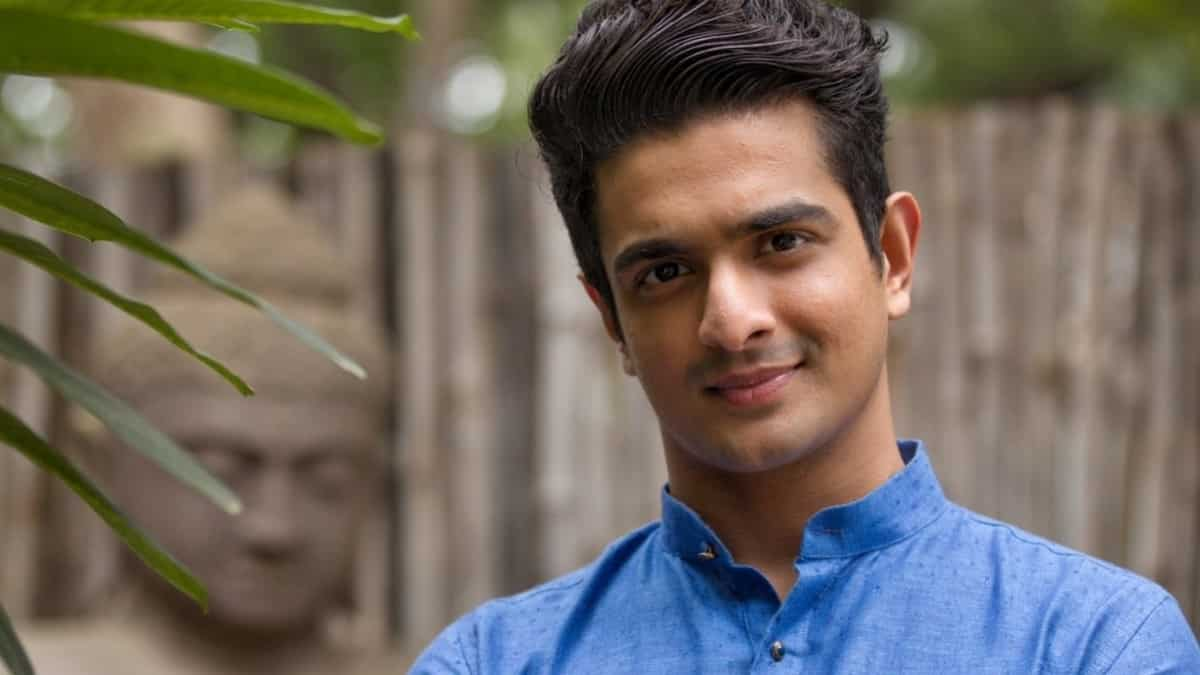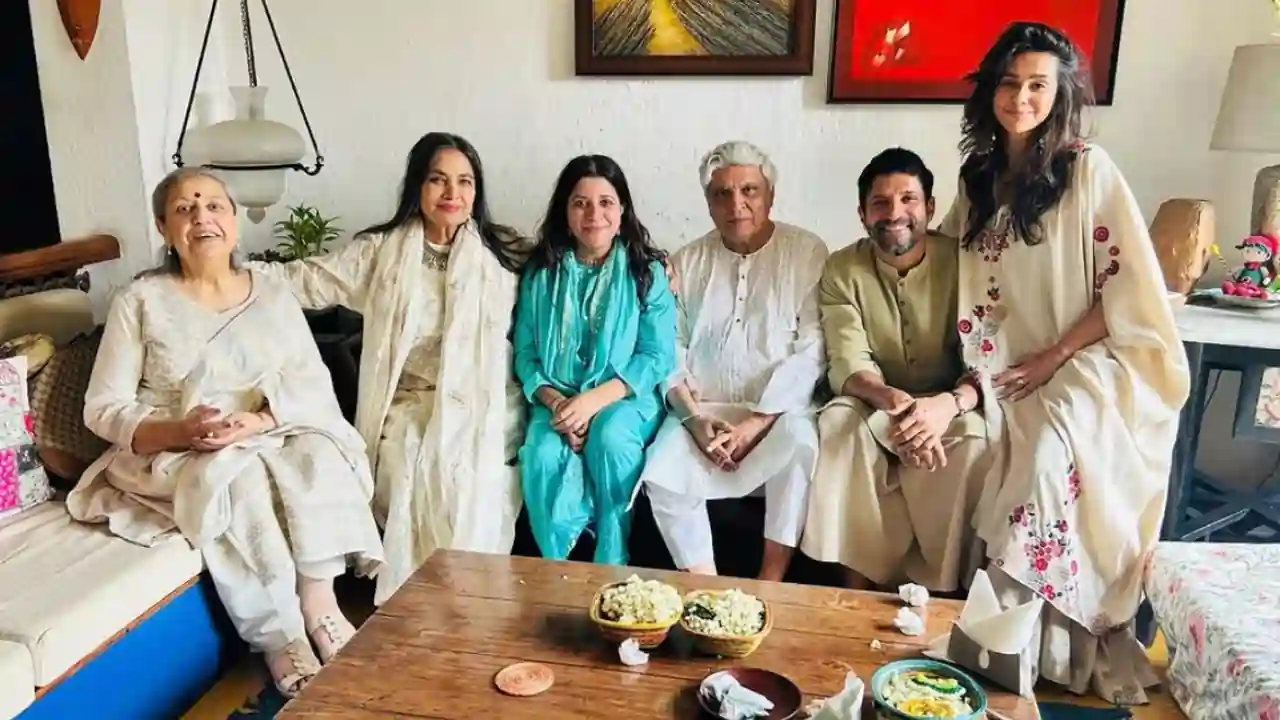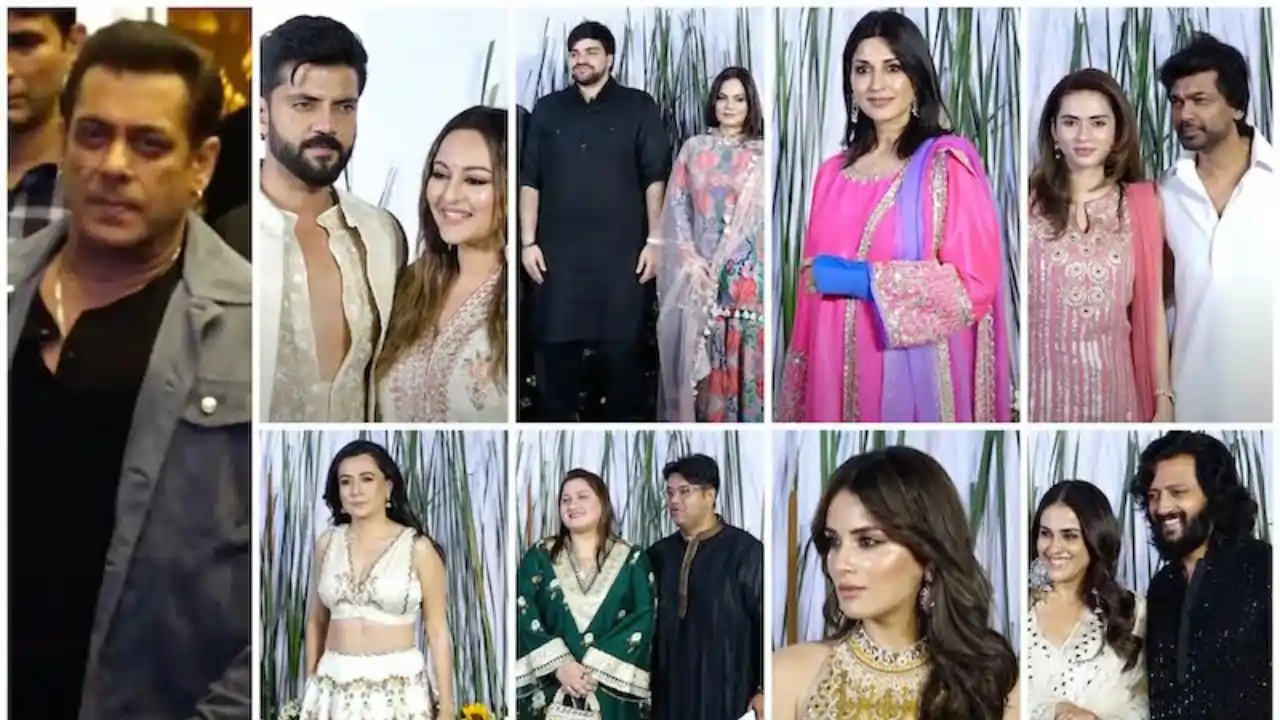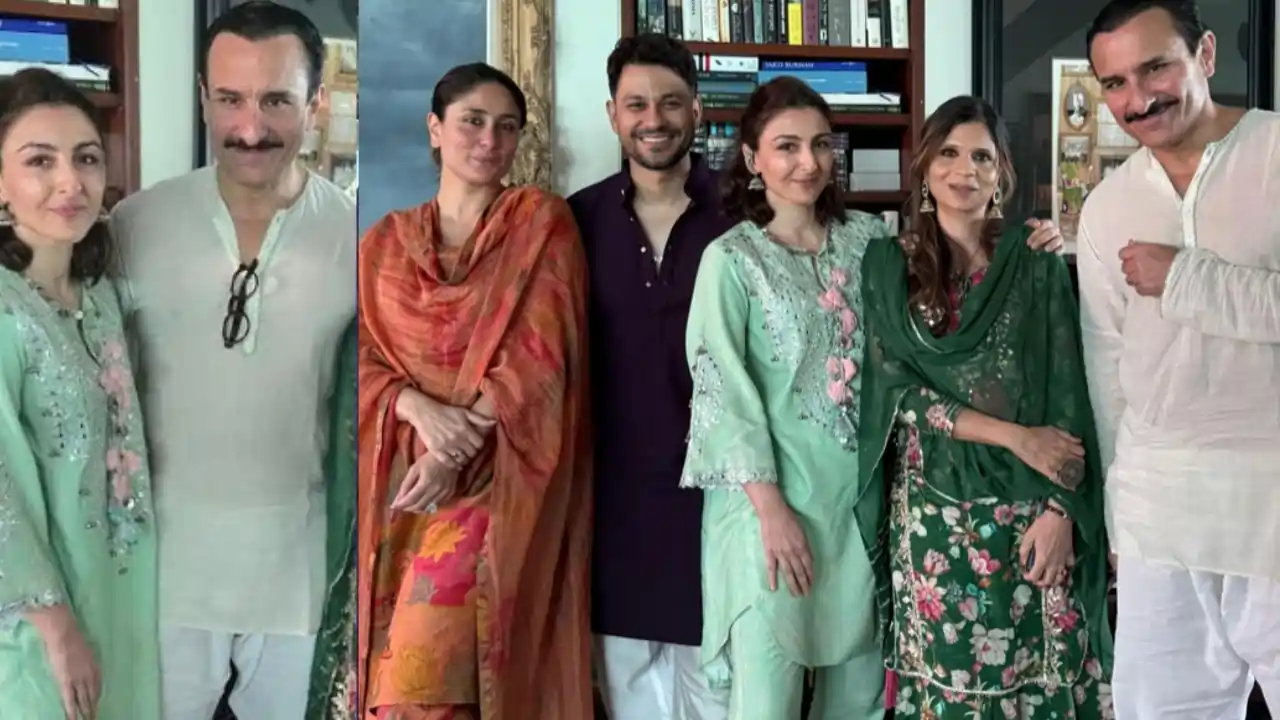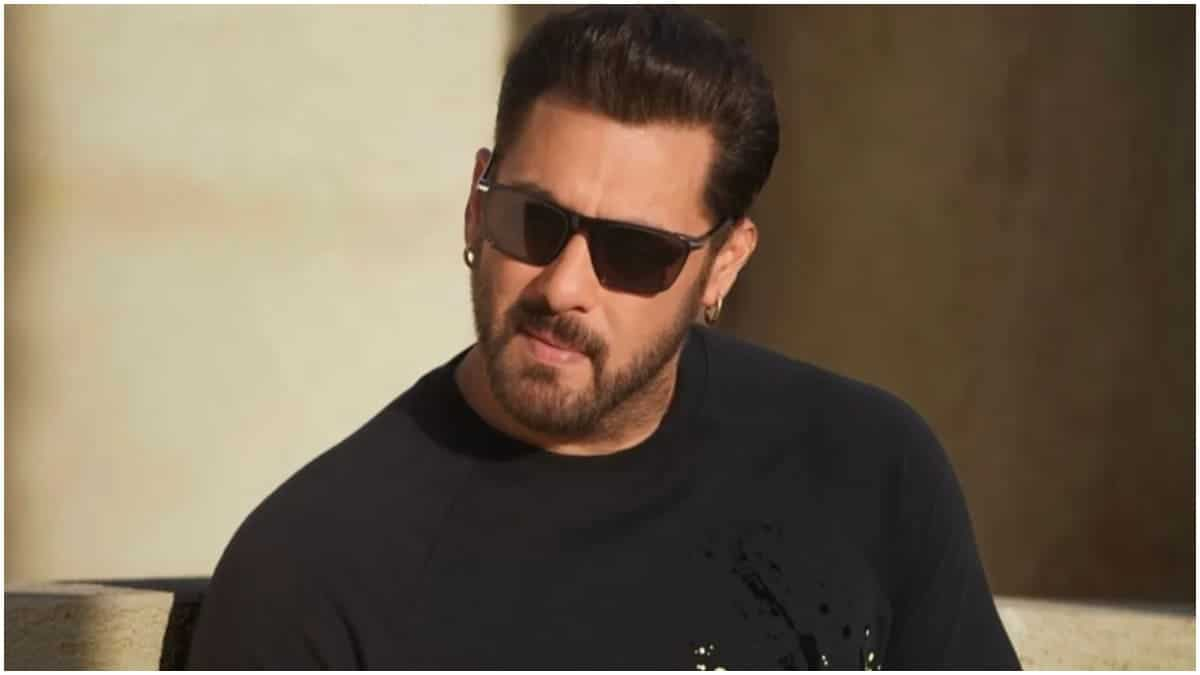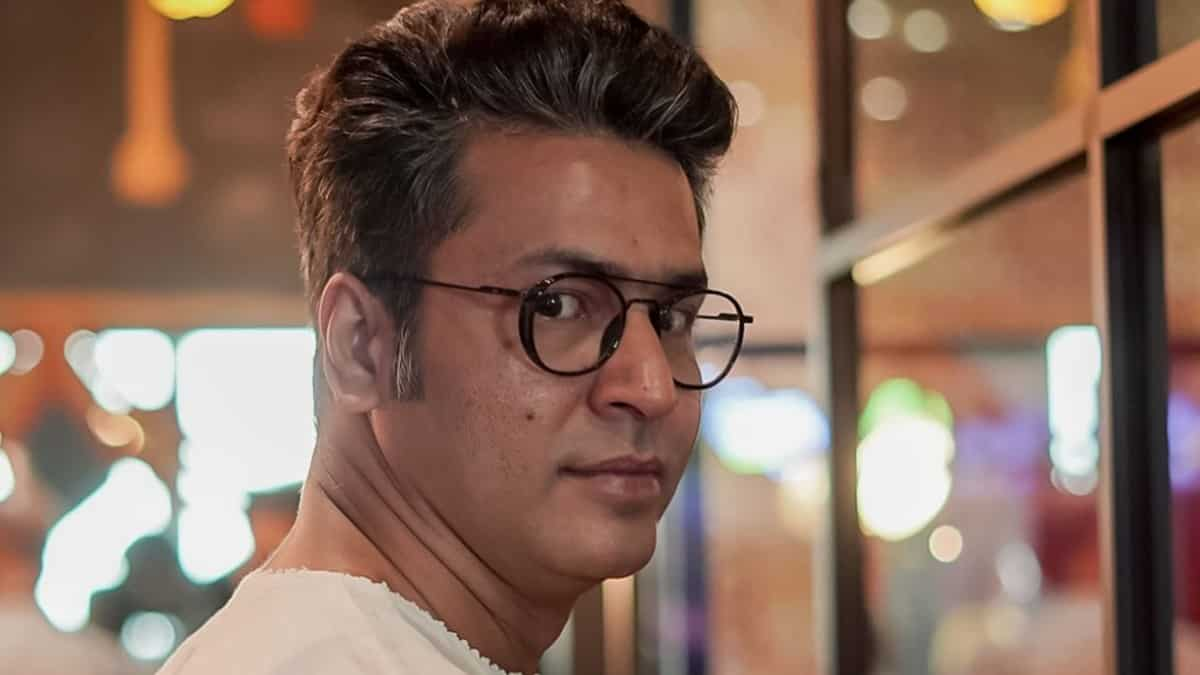
Anirban Bhattacharya: 'Being close with producer Shrikant Mohta did not get me any extra advantage' | Exclusive
4 months ago | 5 Views
After the success of his web series Mandaar and film Ballabhpurer Roopkotha, Anirban Bhattacharya said he would take a break from director and focus on his acting career. However, he worked as a creative director in Arna Mukhopadhyay’s film Atthoi and now in Arpan Garai and Durbar Sharma’s Talmar Romeo Juliet. This web series will stream on Hoichoi from November 15. According to many people, Anirban took a direct part in the making of these projects. How does he manage his career as an actor and as a filmmaker?
Anirban, who has been the center of conversation over many issues, such as the RG Kar protest movement and his rumored unsettled married life, talked to OTTplay about his love for Shakespeare, his plan to be a producer, his internal mechanism for dealing with the menace of social media, and gossip. Read on.
What is this creative director? You might as well be the director of the project...
After Ballabhpurer Roopkotha, my producer Shrikant Mohta and I had a chat. He told me that if I get to hear some good script from new and upcoming people with a young cast, I should pitch it to him. He said that he would like to pick it up if he likes it. He asked me to oversee it. Atthoi and Talmar Romeo Juliet are the results of this conversation. However, my first project as a creative director was Byomkesh O Pinjrapol. That was also a break from the usual Byomkesh palette. As a producer, Shrikantda noticed it. He could see the difference. By then, we had done two projects Mandaar and Ballabhpur – within the same budget constraint sans any huge budget and finally could yield some positive response. Both these projects did well – one in the OTT space and the other at the box office. This gave the producers some financial confidence in us. In a money-oriented industry like cinema, if there is a visible business return, people will start putting faith in you. We could do a risky film like Atthoi and an unusual adaptation of Romeo Juliet by Durbar (Sharma) and Arpan (Garai).
Besides all this, I have another attraction. In each of these projects, I get a fabulous character. In Atthoi, I play Iago. In TRJ, I play Tybalt. I love these characters. So as an actor, I get good roles. After Mandaar and Ballabhpur, there was a dearth of good roles for me.
But is it less work than a director?
It is the same level of investment. It is not a compulsion, but I enjoy it.
After Ballavpur, you said you wanted to take a break from direction. But you are almost working as a director now. Could you take that break you wanted to take?
You are right. But there are a few things. After that chat with Shrikantda, I felt I had some level of artistic responsibility. Besides, I also felt that through this rigor of creative direction, I am growing as an artist. I have better control over music, sound design, acting, camerawork, and other departments. As an artist, I am learning a lot more about other departments. And, most importantly, as I am walking through this process, I have started nurturing a producer in me.
So you want to be a producer now?
Not financer. Producer. Yes. I intend to produce films someday. I want to expand my horizons. If I do it I will not do it alone. I always function with a team – Aritra, Pratik Dutta, Soumik Halder, and others. All of us are nurturing the producer qualities in us. We can think of doing something together.
Macbeth in Mandaar, Othello in Atthoi, and now Romeo Juliet in TRJ. Why Shakespeare?
First of all, Shakespeare’s works are the most entertaining. It has been proved that his plays can engage people from different social classes. In Shakespeare In Love, if we see the audience at the Globe Theatre, we will see the working-class people standing on the ground as the Queen sits on the upper stall. Any maker who wants to reach out to a larger audience through a straight and simple story that has philosophical and psychological anecdotes, they will surely choose Shakespeare.
Furthermore, I have no problem in working with Shakespeare again and again. There are far too many directors and actors in the world who have only worked on Shakespeare’s plays – again and again. There are directors at the Royal Shakespeare Company who made four different productions of just one play. This exercise is pretty common. In today’s social media-driven world, people crave something new all the time. They get exasperated to see another Shakespeare. In an ideal audience and artiste community, more of Shakespeare cannot even be an issue. They should be happy.
The question is not about happiness but the reason behind your decision to choose Shakespeare...
I gave you one. The second reason for choosing Shakespeare is we are getting some excellent adaptations. Atthoi and TRJ are simply outstanding – even better than Mandaar’s adaptation.
All over the world, Shakespeare has been adapted, comtemporised, and even changed. When our classics are contemporised, we see a sharp reaction from society. Your thoughts...
First, Shakespeare was accepted by the masses. Tagore’s work was limited to elite society. Apart from them, Tagore was not accepted by the masses. In his essay, Shambhu Mitra wrote about his conversation with a man from a village in Rabindrasangeet. I would request everyone to read it. Historically, Tagore has never been enjoyed by common people apart from the elite Bengali society.
Moreover, deconstruction does not work in our society. Shakespeare works because it is not our own. Here, most of the people did not read Shakespeare as is in unabridged form. They read it usually through the adaptations. But the moment I would like to deconstruct Tagore, there is a clash between the original perception and the new adaptation. This is true for almost all the literature that we read. I would say this is an Indian trait, more so for the Bengalis. We don’t like deconstruction.
Your Bollywood outing with Mrs. Chatterjee vs Norway was noticed. How is your career on the national stage going?
Nothing is happening in my Hindi career.
Why is that so?
I was once told by a YRF casting person, “You need to do some PR here.” That is something I could not do. First, I did not get time. And second, I did not feel like it. I got some offers. Sometimes I did not like the job. Sometimes there were clashes of dates. I agreed to do some of them. I can’t talk about those, but they are for next year. However, in the existing system of Mumbai, PR exercise plays a major role. Meeting the casting directors, talking to people, and at least, showing some urgency. I could not do that. I did not get that time and also did not take it up as a task on me. I worked in a film. People saw I can act. If I am asked again, I will go. But I did invest in it.
Meanwhile, here, you are doing a lot of projects. It is often said that since you have a good rapport with the producers (SVF), you get an easy way. From casting to budget – everything seems to be a cakewalk, they say...
Not at all. It has never been a cakewalk. The process of the scrutiny and filter that I go through is the same for everybody. There were times when I could bypass or skip a number of steps in the process because of my track record. I refused.
Why? To be fair?
No. So that I don’t suffer from overconfidence. So that I maintain the checks and balances. The producers I am dealing with have been in this business for 30 years. I am a couple of films old. I will never be able to match their suggestion. I pushed them to sit with me and give me suggestions.
The other way around? Since you share a good rapport could the producer unduly interfere in your artistic liberty?
Never. I could work the way I wanted to and with the people, I wanted to work with. Every single time.
But given our industry structure, that itself is a privilege, isn't it?
But I had to work hard for that. I had to take auditions to show the differences between performers. When I said I wanted this actor, I was denied. And then I had to take 25 auditions and prove my point.
You have been a private person with a minimum presence on social media. And yet you cannot avoid being trolled and judged...
It will never end. I accepted it as a bitter reality of our modern civilization. Our society and industry will have to accept the detrimental consequences of this.
Do you ever feel that if you were a bit more vocal you could defend yourself better...
Never. It is not a logical game. There is no iota of rationality here. It is something utterly unnecessary. Human society is thousands of years old. Social media has been here for 15 years. There were wars, moon and space expeditions, the Olympics, World Cups, elections, music creation, and criminal investigation before social media existed. Nothing happened in these 15/17 years that did not happen before. Mark Zuckerberg became a new billionaire. He had a fantastic business idea of creating a platform for people who have time, grudges, voyeurism, love, and energy, and gain money out of it. There is nothing holy about it. It does not have any intention to change the world or society for good.
From the Arab Spring to Bangladesh – social media could incite rage and take down governments but cannot build a nation. It cannot offer you a new and fresh idea to make society better. I see this as a destructive force. In its wrath of bringing down autocratic leaders, it can very well bring down a good leader. People who use Facebook in their rebellious journey often mistake social media for their comrades. Social media is no one’s comrade ever. It is a lone evil.
How did the RG Kar incident affect you? What did you do?
I was shattered. When the reports came out, I saw the faces of people around me. My mother, Madhu, Koel – my friend’s wife – I saw how their faces changed. I grew up with a lot of women – two grandmothers, Ma, aunts, my theatre guru Adrija Dasgupta, director Abantidi, my girlfriends... I am very much like my mother. I have a side of feminine sensitivity in me. I was completely shattered after the incident. I could not move. I was very happy when I saw the crowd on the street on August 14. I did not physically attend because that was a deliberate decision. But I was so excited. I was awake the whole night, checking news feeds of how people gathered together. And then everything fell apart. Monsters were all waiting. Gradually they appropriated the movement.
Does your politics get reflected in your art? Do you see the need for it?
In India, arts and politics are two different things. Indian viewers do not want politics in their entertainment. If they see it, they fail to identify it. The form of politics here and the form of political art here are completely different. In India, people see politics as politics and arts as art forms. In cinema, I would put my faith in Amitabh Bachchan even when he walks alone. In politics, people tend to support politicians who have the backing of the majority of people.
Your private life has often been dissected on social media. How do you deal with it?
I know about those things. I did not deal with the news, story or the trolls. My job was to deal with my family. I tried to do that.
When there is gossip about you and your heroine comes out in public, does it affect Madhurima?
They do sometimes. Not that I could manage such a menace all the time. I get infuriated. A portal called up my father-in-law recorded the conversation, and broadcasted the audio without his permission. What to do? Do I sue them? Do I take a mic and address the people and teach them that this is my private space and should not be invaded? What’s the point? We all know our society is voyeuristic. There is data to support that. I don’t want a life that is perceived by other people. I live my own life.
HOW DID YOU LIKE THIS ARTICLE? CHOOSE YOUR EMOTICON !
#

